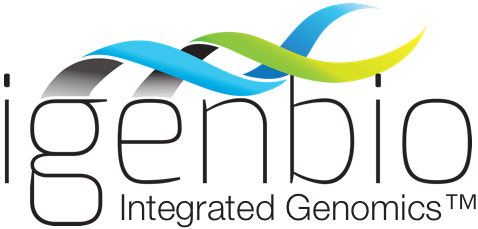Integrated Genomics Completes the World's Largest Multi-strain Sequencing Project for Flesh Eating Bacteria
/CHICAGO, IL - May 24, 2006
The publication and release of four new group A pyogenes genome sequences (commonly known as "flesh eating bacteria"),marks the completion of the world's largest multi-strain bacterial pathogen sequencing project. In total, seven group-A Streptococcus pyogenes organisms - associated with a variety of invasive diseases including macrolide resistant pharyngitis, puepural sepsis, necrotizing fasciitis, bacteremia, and toxic shock syndrome - were sequenced to completion by Integrated Genomics (IG). Due to advanced infrastructure, IG was able to simultaneously sequence these 7 genomes with no cross contamination issues. Sequences were analyzed and compared using Integrated Genomics' ERGO™ Bioinformatics Suite for researchers in the Laboratory of Human Bacterial Pathogenesis (LHBP) at the Rocky Mountain Laboratories (RML), an intramural laboratory of the National Institute of Allergy and Infectious Disease located in Hamilton, MT. The complete and published sequence of the seven genomes now allows researchers to investigate the genetics behind the different pathologies of the group A Streptococcus bacteria.
Optimized for analysis of micro-organisms, ERGO™ integrates biological data from genomics, biochemistry, gene expression studies, genetics and literature. Reaching beyond conventional systems for functional analysis of DNA sequences, Integrated Genomics' platform combines pattern-based analysis with comparative genomics and enables visualization of genes in the contexts of regulation, gene expression data, phylogeny, chromosomal neighbourhoods and identification of natural gene fusions. ERGO™ contains more than 960 genomes at various stages of completion, as well as the largest available collection of networked cellular pathways.
About Integrated Genomics
Integrated Genomics is a provider of bioinformatics products and services for the life science industry, with a recent focus on the use of in silico strategies for comparative genomics. The company's expertise in microbial genomics includes genome sequencing, genome analysis and custom bioinformatics. IG has developed and distributed ERGO™, the most advanced and comprehensive bioinformatics suite for microbial genomics on the market. ERGO™ contains the largest available integration of microbial genome data, including genome-derived metabolic reconstructions and representing the chemical reaction networks of metabolic pathways.
About the Laboratory of Human Bacterial Pathogenesis at RML
Originally founded in 1927 by the Montana Legislature as modern entomological laboratory in Hamilton, Rocky Mountain Laboratories (RML) became a federal facility in 1937 and part of what is known today as the National Institute of Allergy and Infectious Diseases, a component of the National Institutes of Health. The Laboratory of Human Bacterial Pathogenesis (LHBP) studies the molecular basis of human bacterial pathogenesis in its broadest sense. Research projects currently focus on the pathogenic Borrelia species, group A Streptococcus, and Staphylococcus epidermidis and Staphylococcus aureus. The human genetics of susceptibility to infectious agents and the role of polymorphonuclear leukocytes in host defense also are studied. Genome-wide strategies such as high-throughput DNA sequencing and expression array analysis are used. The long-term goal of the laboratory is to understand the fundamental molecular mechanisms of bacterial pathogen-host interactions; define the molecular basis of epidemics and pathogen emergence and reemergence; develop new therapeutics, such as vaccines, for prevention of bacterial infections; and identify host genetic factors influencing disease character.
Contact:
Vinayak Kapatral, Ph.D.
Vice President, Business Development
Integrated Genomics
(312) 491-0846 ext.326
Vinayak@integratedgenomics.com


